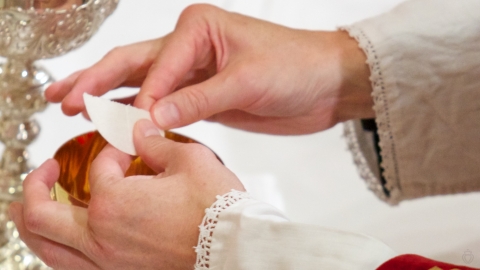Coronavirus, Faith, and Family: What the Richest Countries Think

As the pandemic caused by SARS-CoV-2 and its countless variants continues to disrupt the daily lives of billions of women and men around the world, many in the richest countries feel the need to turn, to varying degrees, to religion or family.
This is what was revealed by the Pew Research Center survey published on January 27, 2021, previously conducted from June 10 to August 3, 2020, among 14,276 adults in 14 countries considered by the research institute to be the “the most advanced economically,” namely: the United States, Canada, Belgium, Denmark, France, Germany, Italy, the Netherlands, Spain, Sweden, United Kingdom, Australia, Japan, and South Korea.
A Greater Faith
In 11 of the 14 countries studied, the proportion of those who say their “faith” has been strengthened is higher than that of those who say it has weakened. It is especially in the United States that we find more people who recognize that the epidemic has strengthened their religious faith. Thus, nearly three Americans in ten (28%) evoke “a stronger personal faith because of the pandemic.”
In Spain and Italy, about one in six people, or 16% and 15% respectively, recognize an increase in faith due to Covid-19. By comparison, only 13% in Canada, and 10% in France claim to make the same observation.
A return to faith—notes the Pew Research Center—which is observed much more widely among those with an income equal to or lower than the national median income, especially in the United States and Spain, as well as in Canada and Italy, UK, Netherlands, France, South Korea and Japan.
Strengthened Family Relationships
In the countries covered by the study, many of those hit hard by the first wave of the epidemic say their family relationships have strengthened. This is the case for Spain (42%), Italy, the United Kingdom and the United States (41% each).
In this statement, France is trailing behind (32%), tied with Belgium, followed in Europe by the German-speaking and Scandinavian countries. Note that a record number of young adults in the United States returned to their parental home during confinement, which is an explanatory factor.
The raw data provided by the American think tank allow us to draw a few observations: first, the secularization of the European countries matters of religious, which now seems to be inescapable and irreversible, from a human point of view.
The cases of Spain and Italy should be noted: hard hit by the first wave of the epidemic, and still marked by the imprint of Catholicism, the inhabitants of these two European countries are more prone than the others to return to the faith of their ancestors.
The difference is clear with neighboring France, marked by secularism. Is it a coincidence that Islam, sometimes the most radical, is the religion that appeals to the most “ethnic” French people in France? Nature abhors a vacuum.
(Source : Pew Research Center – FSSPX.Actualités)
Illustration : IStock / Brunomartinsimagens



